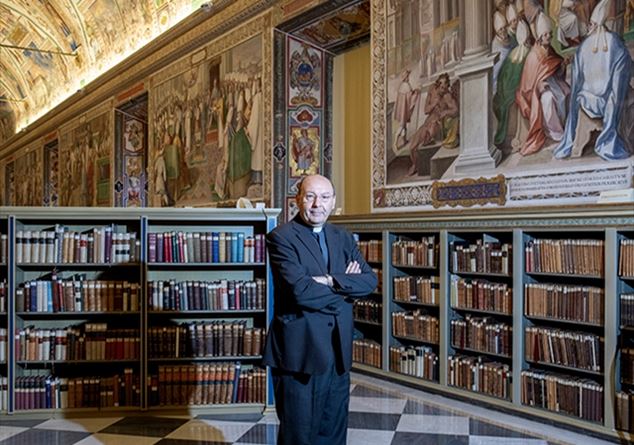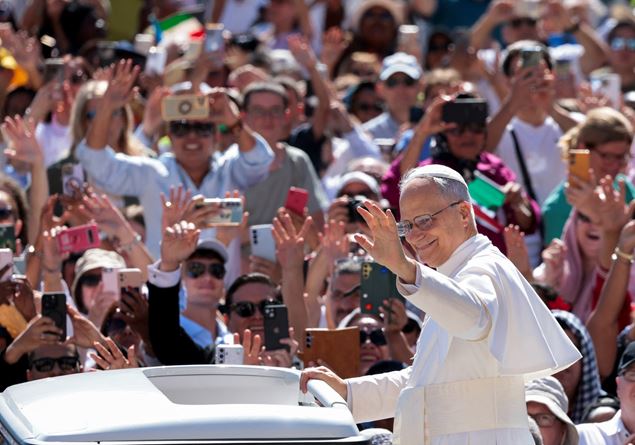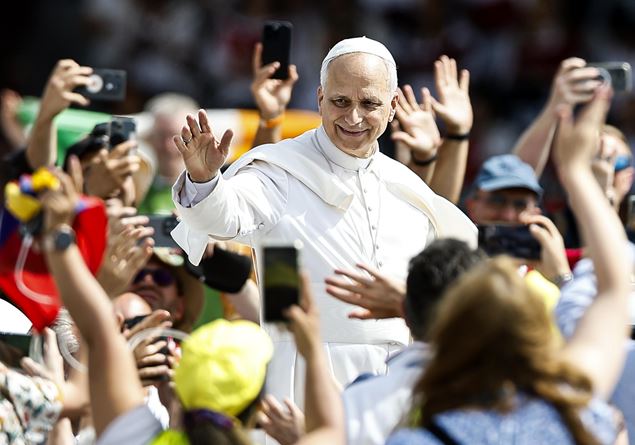Second general catechesis for Pope Leo. The pontiff continues the cycle of catechesis opened by Pope Francis for the jubilee year on the theme “Jesus Christ our hope”. This week meditation focuses on the parable “The Samaritan. Passing him next to him, he saw and had compassion” taken from Luca’s Gospel.
And he immediately warns: “The practice of worship does not automatically lead to being compassionate”. In fact, in front of a man who, from the city placed on the mountain, Jerusalem, walked towards Gerico, the city placed under sea level, and is attacked by the brigands do not stop the priest or the Levitician. To emphasize that “before a religious question, compassion is a question of humanity! Before being believers, we are called to be human. We can imagine that, after having remained for a long time in Jerusalem, that priest and that Levita are in a hurry to return home. It is precisely the haste, so present in our life, that many times it prevents us from trying compassion. Those who think that their journey must have priority is not willing to stop for the other “.
Jesus tells the parable to make “an expert, prepared person, a doctor of the law” change perspective and who questions him about how eternal life is inherited. The use of “inheritance” expression tells us that that man means eternal life “as an unequivocal right. But behind this question, perhaps a need for attention is hidden: the only word on which he asks for explanations from Jesus is the term “next”, who literally means the one who is close. For this, Jesus tells a parable that is a journey to transform that question, to move from those who love me? Who did he love? The first is an immature question, the second is the question of the adult who understood the meaning of his life. The first question is what we pronounce when we put ourselves in the corner and wait, the second is the one that pushes us to start on the way ».
The Pope underlines that that of being beaten “is the experience that happens when situations, people, sometimes even those we have trusted, take everything off and leave us in the middle of the road. Life, however, is made of meetings, and in these meetings we come out for what we are. We find ourselves in front of the other, in front of his fragility and weakness and we can decide what to do: take care of it or pretend nothing to be. “
Only the Samaritan is able to stop. «In his case, the text does not specify the direction, but only says he was traveling. Religity has nothing to do with it. This Samaritan stops simply because he is a man in front of another man who needs help. Compassion is expressed through concrete gestures. The evangelist Luca lingers on the actions of the Samaritan, whom we call “good”, but that in the text is simply a person: the Samaritan is close to, because if you want to help someone you cannot think of keeping you remotely, you have to get involved, dirty, perhaps contaminate; the wounds the wounds after cleaning them with oil and wine; It loads him on his mushroom, that is, it takes care of it, because it really helps if you are willing to feel the weight of the pain of the other; He takes him to a hotel where he spends money, “two money”, more or less two days of work; And he undertakes to return and possibly pay again, because the other is not a package to be delivered, but someone to take care of. “
And, concludes the Pope, “When will we also be able to stop our journey and have compassion? When we understand that that wounded man along the road represents each of us. And then the memory of all the times Jesus stopped to take care of us will make us more capable of compassion. We pray, therefore, that we can grow in humanity, so that our relationships are more true and richer in compassion. We ask the heart of Christ the grace to have more and more his own feelings ».










